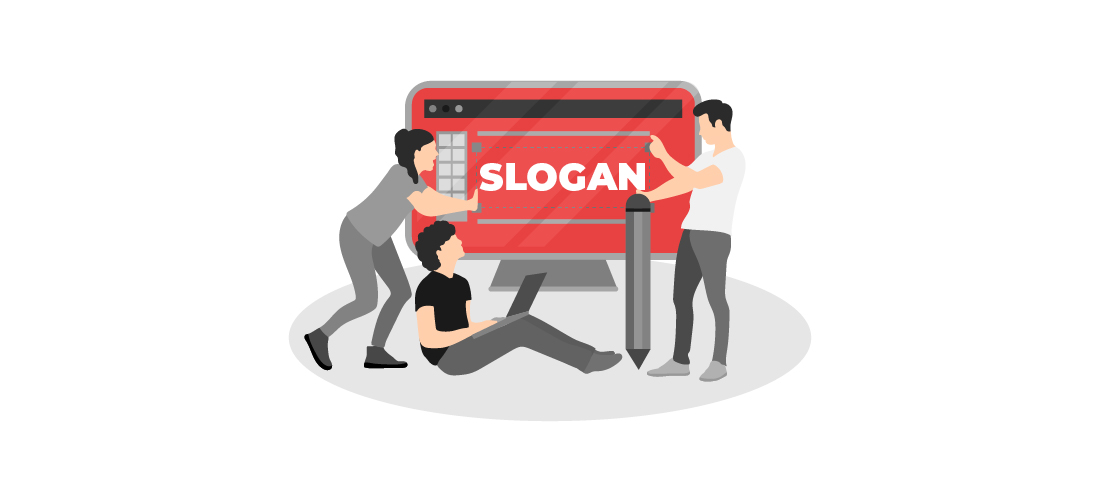Advertising Slogans
What is Advertising Slogan?
A brand essence exists in advertising slogans, which feature brief yet powerful declarations that define the core identity of a brand. A company uses these statements to build its brand identity and market itself effectively through differentiation and personality expression while leaving lasting impressions. Through well-crafted slogans, companies achieve both awareness building and emotional connections which result in memorable oral icons that people naturally remember throughout time.
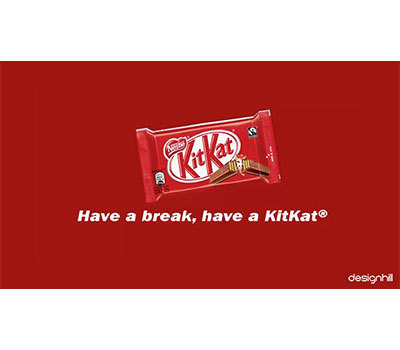
Types of slogans
The various forms of advertising slogans include descriptive, persuasive, emotional, and functional types. These slogans serve different purposes through functions that range from demonstrating product advantages to building emotional bonds between brands and their customers. Some identify a promise of a brand, while others spur thinking or initiate action. A great slogan bridges tone, intent, and message to intensify brand recognition and grab attention immediately.
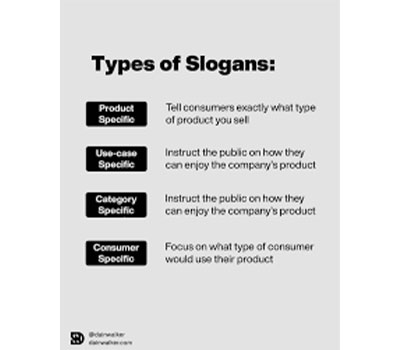
The Importance of Advertising Slogans
Enhancing Brand Recognition
A good advertising slogan supports brand awareness by making the brand immediately recognizable. It leaves a verbal mark in the consumers' minds, even in saturated markets, and increases recall with ease.
Creating Emotional Connections with Consumers
An effective slogan goes beyond product features, it speaks on an emotional level. It captures the values, hopes, or sense of humor of the audience, building higher engagement and making the brand more human and relatable.
Driving Consumer Action and Purchase
An effective slogan generates action by creating curiosity, emphasizing advantages, or stimulating desire. It prompts customers to act next, by purchasing, clicking, or inquiring, by communicating a clear and persuasive message.
Establishing Brand Loyalty and Trust
Trust is established over the years, and a consistent slogan substantiates that trust. If a slogan repeatedly fulfills the brand promise, it solidifies customer loyalty and makes the brand familiar, reliable, and real.
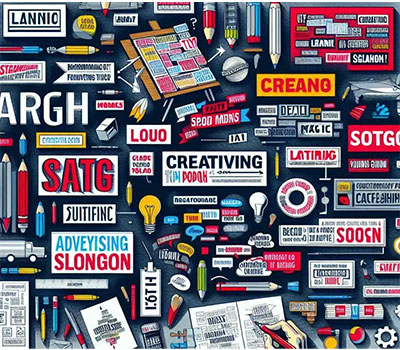
Function of Advertising Slogan
Summarizes the brand message
One of the most important elements of a brand is distilled into a few powerful words. It conveys what the brand is about, what it offers, and why it matters concisely and straightforwardly, without lengthy explanation.
Captures audience attention
In a busy world, an ad slogan is a hook. Written well, it will get attention in under one second, putting the brand front and center and not letting go of people's minds.
Enhances brand recognition
Repetition produces familiarity. A repeated slogan on marketing platforms creates recognition, and due to that, it is easier for consumers to associate the slogan with the brand, its values, and its promise.
Creates emotional appeal
Great slogans educate, but they also stimulate. Using a warm tone or emotive language, slogans resonate with the sentiment of the audience and turn a generic phrase into a rich brand experience.
Differentiates the brand
In competitive economies, a fresh slogan can challenge what sets a brand apart. A slogan functions to represent exceptional characteristics and tone, and personality, which enables customers to instantly recognize why the brand stands apart from its competitors.
Reinforces brand identity
The identity of a brand receives support through its slogan because it helps maintain its mission along with its voice and promise. By repetition across platforms, it becomes a signature declaration that reconfirms the presence and purpose of the brand.
Supports marketing campaigns
A slogan for an ad is the linchpin for a marketing campaign. On a billboard or on a social ad, it provides continuity, clarifies messaging, and takes advantage of campaign performance with a memorable base message.
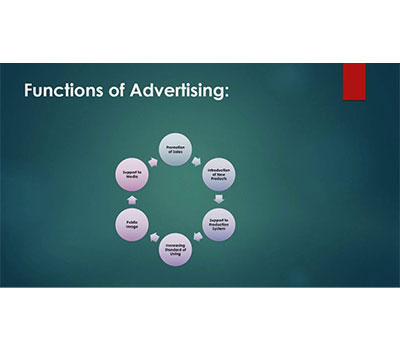
The Impact of Advertising Slogan
Grabs attention and boosts brand recall
A catchy slogan aims to cut through the noise and build long-term memory. It makes it easy to remember a brand even after a single exposure, working toward building visibility and brand awareness.
Communicates message quickly
By way of an ad slogan, the message transmits the tersest encapsulation of that message. It is a grasp-the-heart-of-the-brand all-in-one-phrase time-saver, thus giving the message more emphasis and making it imprinted in the audience's minds within seconds.
Builds emotional connection
Emotionally charged slogans turn goods into experiences. They can evoke feelings of joy, nostalgia, or empowerment so as to seal the consumer-to-brand bond and build deeper loyalty.
Strengthens brand identity
The repeated murmuring of the slogan positions the brand in front of the public alongside the personality behind it. Over a period, this becomes an auditory icon for the brand, giving the audience common ground to identify with and react to brand's intentions.
Reinforces brand values
Slogans insidiously script a brand's values, sustainability, freedom, innovation, into the psyche of the public. It is what the brand believes in and why customers do.
Encourages loyalty and trust
If a slogan resonates with the brand experience, it gets credibility. Over the years, it has been a promise fulfilled, instilling confidence and making consumers come back and stay loyal.
Characteristics of a Good Advertising Slogan
Short and Catchy
A catchy slogan aims to cut through the noise and build long-term memory. It makes it easy to remember a brand even after a single exposure, working toward building visibility and brand awareness.
Easy to Remember
By way of an ad slogan, the message transmits the tersest encapsulation of that message. It is a grasp-the-heart-of-the-brand all-in-one-phrase time-saver, thus giving the message more emphasis and making it imprinted in the audience's minds within seconds.
Evokes Emotion or Desire
A strong slogan wins the heart of the audience, be it happiness, success, or adventure. With the power to induce emotion, it makes a statement become an experience about the brand for everyone who uses it.
Reflects the Brand’s Message
The repeated murmuring of the slogan positions the brand in front of the public alongside the personality behind it. Over a period, this becomes an auditory icon for the brand, giving the audience common ground to identify with and react to the brand's intentions.
Examples of Famous Advertising Slogans
Nike - Just Do It
Nike's "Just Do It" is bold, self-empowering, and eternal. It moves beyond products to address the essential human urge to take action. Its universal appeal helped establish Nike as a brand that was more than an athletic wear brand.

McDonald’s - I’m Lovin’ It
Five words are utilized by the slogan to render the brief message about being happy. The line's upbeat, emotive tone and in built cross cultural terms help enlarge the McDonald's name as a brand having an emotional affinity for family happiness.
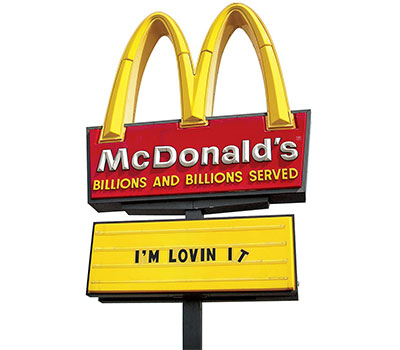
Coca-Cola - Open Happiness
The corporate slogan "Open Happiness" bridges Coca-Cola consumption to a particular emotional experience. The company establishes a purposeful connection between consumers and its brand through emotional experiences, which enhances brand recognition and elevates drinking from a simple refreshment to real pleasure.
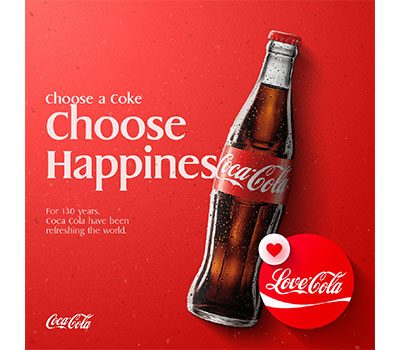
Apple - Think Different
The tagline from Apple established the company as a daring and non-traditional organization. The slogan drew equal numbers of artistic persons and technical experts to Apple, which allowed the company to become its industry pioneer and deliver its visionary mission.
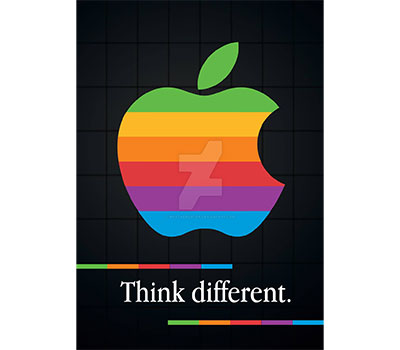
How to Create a Successful Advertising Slogan
Know Your Audience
Your customer is the priority. A good slogan is spoken by them, expressing what matters to them, and what they want or need clearly and compellingly.
Keep it Simple and Direct
Simplify. Big words and complex ideas mellow out the impact. A strong slogan delivers the brand message with easy-to-hear, easy-to-understand language. There is no opportunity for misunderstanding.
Focus on the Brand's Core Values
A great slogan encapsulates the spirit of the brand. It should communicate what the brand is about and why it exists to create an even stronger emotional bond with customers who believe in those same principles.
Test and Refine Your Slogan
The best concepts require proper evaluation. Brands use A/B testing alongside surveys and focus groups to evaluate slogan resonance before they refine their messages to match expected audience responses.
Future of Advertising Slogans
As marketing becomes more dynamic, advertising slogans are becoming increasingly dynamic and mission-oriented. Brands are no longer restricting their use of slogans to digital, voice, and AI platforms but are expecting them to be flexible. The upcoming direction of the future will focus on emotional intelligence alongside inclusivity and authenticity, which will manifest through slogans that represent social values and customized consumer engagement. The international market will respond best to brands that use brief messages combined with simple language and cultural understanding.
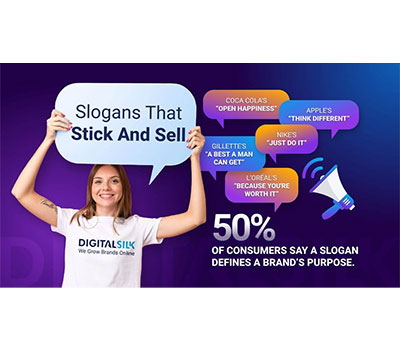
Conclusion
A strong advertising slogan functions beyond words because it serves as an identification tool that develops emotional bonds and stimulates consumer action. Slogans perform essential functions in marketing success through their ability to establish brand recognition and develop trust among consumers. In this rapidly changing age, a great slogan provides enduring value and a lasting competitive advantage.
FAQs
From all touchpoints, convey the same messages so as to familiarize and make the brand relevant to the audience.
Brands might change slogans with the passing of consumer values, trends, or strategic repositioning to keep the messaging aligned with the changing marketplace.
The slogan echoes the very spirit of the brand; it is something more long-term, more universal. Now the slogans change with marketing objectives and product campaigns.
International slogan development takes into consideration cultural values, language nuances, and region-related sensitivities, so that they sound true and are not misinterpreted or cause offense.
The brands carry out a recall test, emotional resonance, and brand perception congruity through focus groups, A/B tests, surveys, and brand tracking before final rollout.


